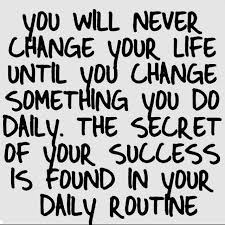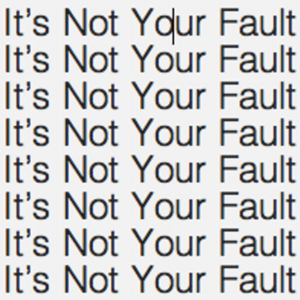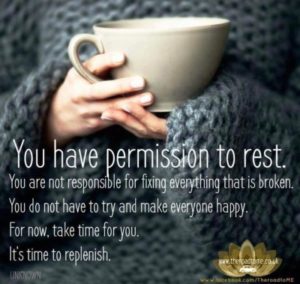Coping with Depression During the Pandemic
 The problem with the current crisis, apart from the obvious one of the coronavirus itself, is that it has upset everyone’s routine. We all have a routine, even if we don’t really think about it. And part of that routine usually consists of some sort of regular interaction with friends and family. During the current crisis the opportunity for such interaction has been severely limited. And if you’re a person who suffers from depression, that can spell trouble.
The problem with the current crisis, apart from the obvious one of the coronavirus itself, is that it has upset everyone’s routine. We all have a routine, even if we don’t really think about it. And part of that routine usually consists of some sort of regular interaction with friends and family. During the current crisis the opportunity for such interaction has been severely limited. And if you’re a person who suffers from depression, that can spell trouble.
Being about to talk about your problems, or just to chat in general, are important ways to keep you well grounded. And suddenly finding yourself isolated from your friends can sometimes add to any feelings of isolation or anxiety.
In fact, the problems of anxiety over the coronavirus pandemic can seem magnified if you find yourself more or less isolated. And this can be made even worse if you spend more time than is good for you watching the television news. It’s only natural to want to keep up with events, but the habit of switching to a news channel at the top of every hour usually only adds to your anxiety. You are, in effect, topping up your already overloaded crisis information level. Never a good idea!
You’re not responsible for the crisis!
 It’s important to realise that, with the best will in the world, you personally can do very little to improve or alleviate the situation. This isn’t a bad thing, it’s just reality. Once you accept this fact, you’ll probably stop feeling a sense of responsibility for the situation. Which is a good thing, because you, personally, are not responsible for it.
It’s important to realise that, with the best will in the world, you personally can do very little to improve or alleviate the situation. This isn’t a bad thing, it’s just reality. Once you accept this fact, you’ll probably stop feeling a sense of responsibility for the situation. Which is a good thing, because you, personally, are not responsible for it.
But is there anything you can do? Yes, you can follow the medical guidelines (as opposed to the advice coming out of the White House, which is often contradictory to the advice from the medical experts, and sometimes, frankly, contradictory to common sense). And in so doing you’ll be reducing the risk of you catching COVID 19, or indeed, spreading it. Apart from following good advice, there’s not a lot you can do, so stop beating yourself up about it! Try to get on with life much the way you did before this crisis, as far as that’s possible.
And apart from the specific medical guidelines, there are some common sense guidelines you should pay attention to. First, and perhaps most important, you should relax. It’s very important that you keep calm. If you’re prone to depression or anxiety, this might not be easy for you. So approach it with a plan in mind!
Relax!
 Set aside a few minutes, two or three times a day, when you can go to a specific place (maybe a favourite armchair?) and just sit peacefully and quietly. If you find it helps, listen to some gentle music, or some sort of relaxing recording, perhaps repeated affirmations that you find particularly calming. Do a couple of minutes’ deep breathing, just focusing on your breath going in … and going out. Focusing on the breath is a known way to reach a place of calmness and peace.
Set aside a few minutes, two or three times a day, when you can go to a specific place (maybe a favourite armchair?) and just sit peacefully and quietly. If you find it helps, listen to some gentle music, or some sort of relaxing recording, perhaps repeated affirmations that you find particularly calming. Do a couple of minutes’ deep breathing, just focusing on your breath going in … and going out. Focusing on the breath is a known way to reach a place of calmness and peace.
And as thoughts enter your mind, thoughts that threaten to upset your calmness, just gently shoo them away out of focus. Don’t struggle to quieten them down, that would be doomed to failure and would probably only serve to heighten your anxiety. Just acknowledge the thought and tell it you’re not concerned with it right now … and gently escort it to one side, out of your mental focus.
It might help if you use something to remind you to do this a few times a day. You could set an alarm on your phone, or use a reminder app. Try and make it a habit, this relaxing, and once you start to do it habitually it will probably become almost instinctive.
Regular exercise
I’m not advocating an exhausting exercise routine, but the very fact that you’re doing some regular exercise would be beneficial. It could be something as simple as a few minutes stretching, or a few deep knee-bends, along with taking a few deep breaths.
If you can go out, a walk can certainly help to clear your head. It also gives you time to get into a gentle rhythm, which in itself can be therapeutic. No need to make this a power walk, even a relaxing stroll would do you good.
Control your eating
 It’s a well known fact that when you’re depressed or anxious, specially if your routine has been disturbed, your eating can become erratic. You might find you’re eating far too many snacks, and they might well be the ones you really should be avoiding!
It’s a well known fact that when you’re depressed or anxious, specially if your routine has been disturbed, your eating can become erratic. You might find you’re eating far too many snacks, and they might well be the ones you really should be avoiding!
Set yourself a few guidelines for eating, and make a commitment to stick to them. Again, they don’t have to be strict guidelines, just general rules, such as steering clear of cakes and biscuits, except (maybe) directly after a meal. If you want to snack, and there’s nothing wrong with that, try to keep to the healthy options, such as a piece of fruit or a handful of nuts or seeds.
Keep yourself well hydrated
Another aspect of diet that goes out the window when your eating is disturbed is that you tend not to drink enough water. There’s a simple fix for this – keep a bottle of water on your desk, or on the table near you, and make a point of using it. Being dehydrated can play havoc with your digestion, not to mention that it can affect your thinking – your brain consists largely of water, so when you’re low on water it’s inevitable that it’ll affect your brain, right?
Sleep well … and nap when you can
Make sure your bedroom is comfortable and clear of clutter. It needs to be as neat and tidy as possible, and you should have the window open enough to get some fresh air. And do you really need bed coverings that almost smother you? Keep them as light as you can stand and you’ll find that it allows you to sleep so much more peacefully.
It should go without saying that the bedroom is not the place for electronic devices! Limit watching TV to an hour or so before you turn in, preferably, and that goes for smartphones and tablets too. You want to get into a peaceful and relaxed frame of mind even before you get into bed. Too often people carry the troubles of the day into their sleep with them, and then wonder why they don’t sleep well. Not surprising really, when you think about it.
 If you’re feeling a bit anxious or panicky during the day, a nap can often calm you down and make you feel in control again. Just lie down (on the bed, or on a couch) and imagine you’re in a peaceful situation. For example, you might like to imagine you’re on a train journey, maybe in a steam train, and you can feel the coaches click-clacking over the rails, and you can hear the ticket inspector going up and down the carriage, asking people to show their tickets.
If you’re feeling a bit anxious or panicky during the day, a nap can often calm you down and make you feel in control again. Just lie down (on the bed, or on a couch) and imagine you’re in a peaceful situation. For example, you might like to imagine you’re on a train journey, maybe in a steam train, and you can feel the coaches click-clacking over the rails, and you can hear the ticket inspector going up and down the carriage, asking people to show their tickets.
Maybe the train whistle sounds, or perhaps you can hear the heavy rain of a thunderstorm blasting against the window. The effort of creating a detailed scene like this in your mind can transport you away from any troubles that were bothering you. And with the added bonus of helping you drift off into a gentle sleep for half an hour.
Stay clean!
Obviously this has a literal meaning, and a very important one, considering the present crisis, but what I’m referring to here is avoiding things that are likely to upset your state of mind, namely drink and drugs. Neither provide you with anything of value (although they can fool you into thinking otherwise!), and their downside is only too well known. Steer well clear of them, and you’ll be doing yourself a massive favour.
As for those chats and get-togethers, there’s always the phone, or chatting online. You can even set up a group chat – the possibilities for that are endless these days. So you needn’t feel alone or isolated. And if you haven’t anyone close to you that you can discuss your problems with, there’s always self-help groups and chat lines where you can offload to a stranger, which might be even better than talking to a friend or neighbour.
Whatever you do, don’t suffer in silence. If you have things on your mind, talk about them, even if it is to a stranger, or via a helpline. There’s lots of help nowadays for anyone depressed or lonely, or suffering with anxiety. The last thing you want to do is keep things bottled up, that’s the kind of thing that all to often doesn’t end well at all.
Stay safe has become a byword recently, and if you are depressed or lonely it can be even more important to keep that phrase in mind. Remember it’s up to you to make sure you stay safe. Don’t try to brave it out – if you feel you need help, reach out for it; there are people out there ready and willing to lend a helping hand.
